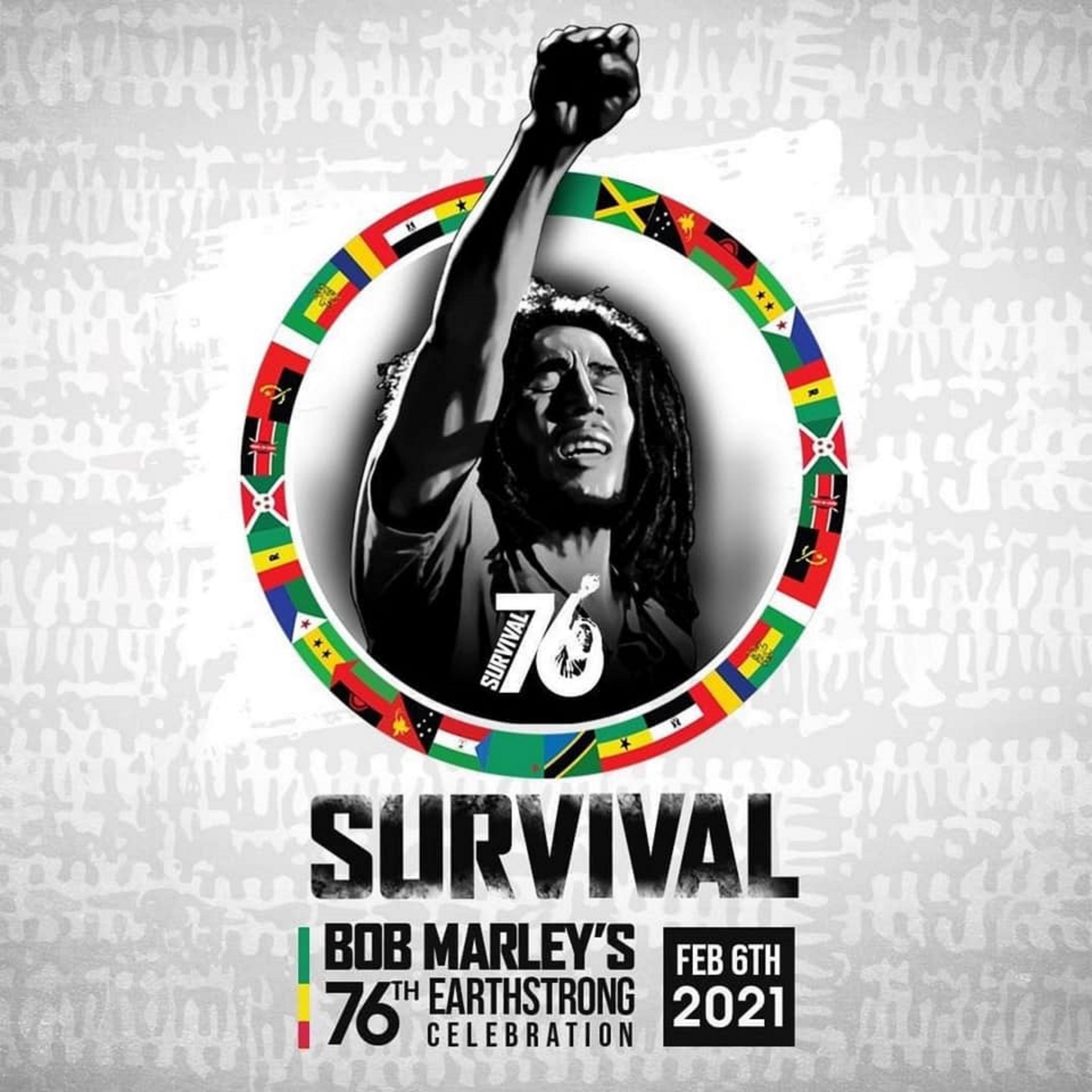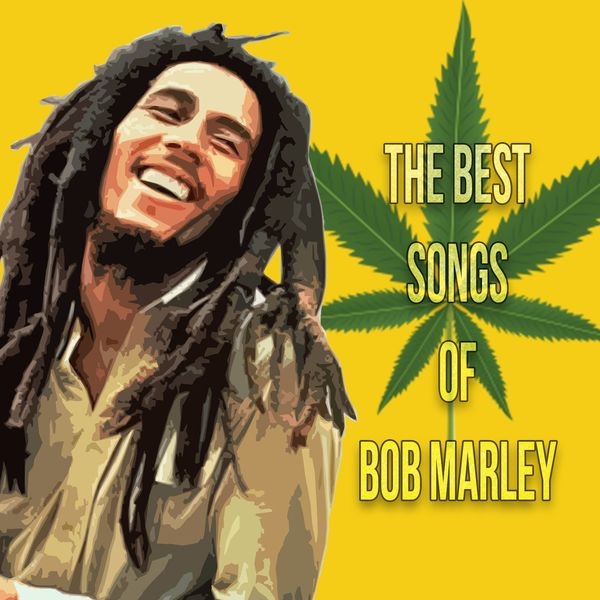Bob Marley’s Birthday: His Musical Legacy, Top Most Loved Songs
 |
| Bob Marley's Birthday. Photo: Grateful Web |
History of Bob Marley's Birthday
Bob Marley was born on February 6, 1945, in St. Ann Parish, Jamaica, and was given the birth name Nesta Robert Marley. His father – Norval Sinclair Marley, was a white British naval captain and nearly 60 years old. Bob’s mother – Cedella, was a black 19-year-old country villager. Due to this racial duality, Marley was bullied and given the nickname ‘White Boy’ in a derogatory context by his neighbors. He said in his later interviews that the experience actually helped him adopt the philosophy: “I’m not on the white man’s side, or the Black man’s side. I’m on God’s side.”
His career took off when he founded a music group with his friends Peter Tosh and Bunny Livingston, called ‘The Wailers.’ In February 1966, Bob married Rita Marley and it was she who introduced him to the concept of Rastafariansim. This heavily influenced Marley’s musical style, especially on the reggae front. In collaboration with Lee Scratch Perry, The Wailers went on to produce some of their best tracks like ‘400 Years,’ ‘Duppy Conqueror,’ ‘Small Axe,’ and ‘Soul Rebel.’
In the 1960s, The Wailers soared to popularity in Jamaica, and in 1972 they signed a contract with ‘Label Island Records.’ The band became an international sensation with the release of their album ‘Catch a Fire’ in 1973. Their next album ‘Burnin’ featured the songs ‘I Shot The Sheriff,’ and ‘Get Up, Stand Up,’ which gathered cult followings. In 1974, The Wailers decided to pursue solo careers and disbanded.
Bob continued to hone and create his personal artistry, but also spent much of the 1970s advocating cultural understanding in Jamaica. In 1976, during one of his peace concerts, an assassination attempt was made on his life, along with his wife and manager. All of them survived and Marley showed up two days later for his next gig, as reported by Nationaltoday.
Bob Marley'sPassing
For all the joy it brought the star, football holds a grim link to Bob Marley’s premature passing.
In 1977, he badly damaged his toe while playing. When the wound refused to heal, Marley sought treatment, and it was then discovered he was suffering the early stages of cancer. Despite the diagnosis in May of 1977, he continued with his heady, exhilarating performances including his famous Rainbow Theatre London gig.
Marley never treated his calling like a choice; he continued ‘jamming’ in spite of the pain and against it, as he’d done to forge his stardom.
He was a man of myriad talents and a liberating consciousness who was sadly only afforded a brief life. Marley tried to curtail the Acral Melanoma (malignant skin cancer) first found under the infected toenail with a skin graft. Refusing to amputate because of religious beliefs, he maintained optimism, engrossed in his European and American tours.
However the medical procedure proved ineffective; the malignant melanoma was already at an advanced stage, amplified by his hectic schedule.
In the prime of his career, Marley played his last show at The Stanley Theater in Pittsburgh, Pennsylvania on September 23, 1980. He collapsed while jogging in New York’s Central Park days later and was forced to cancel his remaining live shows. Marley subsequently underwent unconventional treatment in Germany for months in a final bid to save his life.
As with all superstars, many urban legends and stories of foul play surround his illness and death. One popular sinister account is that a pair of boots was given to the singer by a C.I.A agent, with a radioactive copper inside to prick his toe.
Ironically, the CIA’s involvement in Marley’s assassination attempt and suppression of reggae was explored in a 2018 Emmy nominated Netflix documentary, ‘ReMastered Who Shot the Sheriff?’
There were also claims that Dr. Josef Issels, in whose care Bob spent his final eight months, was a Nazi doctor whose “treatment” was essentially routine poisoning, torture, and starvation.
At his facility, the icon lost his trademark dreadlocks which had become too heavy for his frail frame; in 2012’s Marley documentary, Cedella attested to her father being “so tiny” in his final hours.
There are conflicting versions of Bob’s last words, however, Ziggy told Daily Beast in 2011, “the last thing my father told me was: ‘On your way up, take me up. On your way down, don’t let me down. A father telling his son that puts some responsibility on my shoulders. He told me that, and I take it very seriously.”
Bob Marley died on May 11, 1981, surrounded by his family at the University of Miami Hospital.
His hyperreal magnitude, however, remains unassailed to this day, even by those who claim his fervid light dimmed under Blackwell’s management to appease white masses. The guiding principles of his storytelling have outlasted his tragically shortened life, deifying him in the eyes of many across the world.
“Bob don’t need to write any more song. Him don’t leave out anything, yuh know what ah mean. Him done seh everyting already. Him work was over,” Neville Garrick said, exalting his old friend.
“I always say to people, the only time you’re dead is when they speak your name no more. Bob is even more alive today than when he was living. That’s who you can call an icon, because everywhere I go around the world, I see Bob Marley’s face,” he continued.
Posthumously, Marley was bestowed with a star on Hollywood Boulevard, the Grammy’s Lifetime Achievement Award in 2001, inducted into the Rock & Roll Hall of Fame, plus countless other laurels.
He lives on through his estate, which consistently honors his life’s work and omnipresent voice.
Its 2020 venture, MARLEY75, was a year-long odyssey of audio-visual releases and events commemorating his influence in pop culture, fashion and other spheres.
The 75th earth strong festivities concluded on January 28th with a special livestream tribute from Stephen Marley. Hosted by Ceek and UME, the performance which includes hits such as Three Little Birds and Could You Be Loved, will also kickstart the 76th birthday celebrations.
The team has so far revealed that a new musical, Get Up, Stand Up, is set for May 28, 2021 debut, a full forty years after Marley’s burial. “Marley is not only a hero but like the North Star to me,” director for the musical, Clint Dyer gushed to the UK’s Evening Standard.
Marley’s music – a prime candidate for all things political – was included on the official Biden Harris Inauguration 2021 playlist, also featuring Whitney Houston, Beyoncé, and others.
Could You Be Loved was featured on the 46-song roster which the Biden-Harris team said “represents diversity, strength and resilience as we look forward to new leadership and a new era in America.”
A masterful composer, Marley also made the cover article of American Songwriter’s January’s edition, a publication dedicated to the art and stories of songwriting.
Hardly concerned with accolades in his career, Marley’s focus on livity paid off tremendously, almost like he planned his sustained reggae relevance. In the aforementioned Cathrow interview, Marley dismissed the hecklers of his righteous revolutionary work with another of his famous one-liners, “As long as the music keep doing the right thing, mon, them can’t stop it.”
Bob Marley's Musical Legacy
Decades after his passing, Marley's music remains widely acclaimed. His musical legacy has also continued through his family and longtime bandmates; Rita continues to perform with the I-Threes, the Wailers and some of the Marley children. (Marley reportedly fathered nine children, though reports vary.) Marley's sons, David "Ziggy" and Stephen, and daughters Cedella and Sharon (Rita's daughter from a previous relationship who was adopted by Marley) played for years as Ziggy Marley & the Melody Makers, later performing as the Melody Makers. (Ziggy and Stephen have also had solo successes.) Sons Damian "Gong Jr." Ky-Mani and Julian are also talented recording artists. Other Marley children are involved in family-related businesses, including the Tuff Gong record label, founded by Marley in the mid-1960s.Marley achieved several great accomplishments during his lifetime, including serving as a world ambassador for reggae music, earning induction into the Rock and Roll Hall of Fame in 1994, and selling more than 20 million records—making him the first international superstar to emerge from the so-called Third World.
In January 2018, Island Records founder Chris Blackwell sold the majority of his rights to Marley's catalog to Primary Wave Music Publishing, known for its branding and marketing campaigns for "the icons and legends business." Said Primary Wave founder Larry Mestel, "There isn’t a crevice of the world where Bob Marley isn’t a god."
Marley's commitment to fighting oppression also continues through an organization that was established in his memory by the Marley family: The Bob Marley Foundation is devoted to helping people and organizations in developing nations.
Bob Marley's Top Most Loved Songs
 |
| Photo: Qobuz |
1. "Get Up Stand Up"
Co-written with Peter Tosh, the bare bones of "Get Up Stand Up" had been worked up by Bob during a brief visit to Haiti, where he was deeply disturbed by the evident poverty and oppression. Featured on the Burnin' album, the song became an international anthem to resistance to 'Babylon', one of Bob Marley's most enduring tunes. Being co-written with his longtime spar Peter Tosh only adds to its poetic majesty.
2. "Redemption Song"
On his 1979 tour of the United States, Bob Marley had been toying with the structure of a new song called "Redemption Song". When Bob played the completed songs for what would be the Uprising LP to Chris Blackwell in the Spring of 1980, the record company boss sensed that the LP could go to a higher level. "I feel there's something else you've got to give," he told the singer. The next day Bob Marley played Blackwell a tape of "Redemption Song", some of its lines directly taken from the writings of Marcus Garvey, the black power activist. A folk ballad, played on an acoustic guitar, the song had a crystalline beauty that was like a summation of the entire philosophy of Bob Marley, an elegiac work whose haunting qualities came to dominate the album when positioned as its closing track. Bob Marley had written his own eulogy.
3. "Concrete Jungle"
Initially written under the auspices of Danny Sims, Johnny Nash's manager - who was a crucial figure in the development of Bob Marley - "Concrete Jungle" was one of the statement tunes of Catch A Fire, the Wailers' first Island Records album. "I've never known sweet caress," sings a mordant Bob Marley, revealing the love he had always felt missing in his life. The first of the Catch A Fire tunes to be augmented musically at Island's London studios, the guitarist Wayne Perkins' confident, swirling twirls defined a production of astonishing clarity, one of the greatest album openers ever, this tale of the grim reality of life in Arnett Gardens, Kingston's then newest housing scheme.
4. "Exodus"
In exile in London from Jamaica, where he had narrowly escaped being assassinated, Bob Marley went into the studio, declaring that the new album would be called Exodus - even though no such tune of that name yet existed. When the epic work that was the "Exodus" track finally appeared, there were those who criticised it for sounding like a song belonging to the new form of disco - which precisely missed the point, for Bob Marley's intention always was that it should be a disco tune.
5. "Could You Be Loved"
The reggae-disco sound of "Could You Be Loved" is one of Bob Marley's biggest-ever crossover tunes. But beneath the pulsing dancefloor rhythms the listener is being subversively re-programmed: tossed aside almost in a snatch by the backing singers from Bob's very first 45, "Judge Not": "The road of life is rocky; And you may stumble too. So while you point your fingers, someone else is judging you." Judgement!
6. "Natty Dread"
Originally named Knotty Dread, the title of Bob Marley's first solo album is a simmering statement of intent, both for himself and for humanity. Bob's first recordings without Peter Tosh and Bunny Wailer, "Natty Dread's" somewhat austere feel is perpetually augmented by the sweet harmonies of Rita Marley, Judy Mowatt and Marcia Griffiths, the I Three.
7. "Satisfy My Soul"
Kaya was a collection of love songs and homages to the power of ganja. The album also provided a pair of global hit singles: the beautiful "Is This Love" and the questioning "Satisfy My Soul", another song originally worked up with Scratch Perry.
Why is Bob Marley still so popular, and still so important?“His message is universal,” says Cedella. “His lyrics, words and overall vibe made a lasting impression because we all want peace, justice and appreciation.” “It’s all about the music, and everything we put into it,” says Anderson, who leads TOW: The Original Wailers, one of three currently touring bands composed of former members. (Family Man and Junior Marvin helm The Wailers Band and Junior Marvin’s Wailers, respectively.) Bunny Wailer performs periodically as well. “My father’s music is like an owner’s manual to life,” Stephen reflects. “And it is so relevant today that it will always be popular.” Steffens likens Marley to a Horatio Alger rags-to-riches protagonist, and he calls him a Jesus gure who once supported 6,000 people a month. “He was all things to all people.” “He lived through or he saw around him these situations he sings about,” offers Santa. “His songs were life stories for everyone. Everybody can connect to what he was singing because it was true.” “We’re still here to keep his legacy going. That’s a big part of it,” Ziggy adds. “A second part of it is who he was. His personality, his spirt, his aura, his message, his music—people will always be connected to that. I think people imagine Bob being a friend of theirs.” As the 70th birthday celebration at the Bowl nears its conclusion, over a half-dozen of Bob Marley’s youngest grandchildren join Ziggy and Stephen onstage. They sing and dance and jump around. “Woy-yoy!” call out the Marleys. “Woy-yoy!” responds the world, as Relix cited. |
For more interesting news of KnowInsiders, check out below!
 Who is Chris Pratt - "Avengers" star: Biography, Career, Personal Life and Everything to Know Who is Chris Pratt - "Avengers" star: Biography, Career, Personal Life and Everything to Know On Wednesday morning, the hashtag #RIPChrisPratt started to trend on Twitter, and there’s not a clear reason why. |
 Who is Trey Songz - R&B artist: Biography, Personal Life and Career Who is Trey Songz - R&B artist: Biography, Personal Life and Career Trey Songz, has begun trending on Twitter after an alleged leaked video has surfaced. Although the head of the man in the video is not ... |
 Who is Prahlad Modi: Biography, Family, Property, Image and Personal Life Who is Prahlad Modi: Biography, Family, Property, Image and Personal Life Prime Minister Narendra Modi's brother Prahlad Modi staged a dharna at the Lucknow airport on Wednesday, alleging that police did not let his supporters reach ... |


























